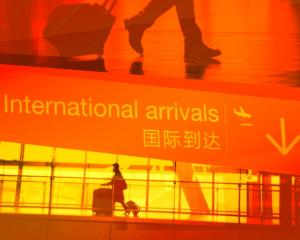
However, the Green party says they are not going far enough to protect New Zealanders.
Ministry of Agriculture and Forestry (MAF) principal adviser Glen Neal said any food "found to have unsafe levels of radiation will be excluded from commerce".
Systematic checks of food from Japan had not identified any that posed a health risk.
MAF was closely monitoring radiation levels from Japan and other countries, Mr Neal said.
The "foods of interest" included dairy products, meat, seafood, fruit and vegetables, tea, and seaweed sourced from five Japanese prefectures of Fukushima, Ibaraki, Tochigi, Chiba and Gunma near the crippled Fukushima Daiichi nuclear plant.
MAF was continuously assessing its response with its first priority the safety of foods being imported for New Zealanders.
Green Party food spokeswoman Sue Kedgley again called on the Government to halt food imports from Japan as a precautionary measure because radiation released from the crippled Fukushima nuclear plant was affecting the Japanese food supply.
"The crisis has been going on for over a month and our Government has done nothing to ensure that food we import from Japan is safe, in the face of the growing contamination problems."
The Government's confidence in Japan's food safety authorities to manage the issue was "naive at best, and foolhardy at worst", she said.
"Many other countries, including Australia, the USA, Singapore and Canada, have halted imports, or are testing Japanese food at the border to ensure it is not contaminated."
Malaysia said from today it will reject Japanese food and agricultural produce not accompanied by a certificate of radioactivity levels.
China has also expanded its ban to include more edible agricultural products and feed from 12 areas in Japan, including Tokyo. Previously it had only food items from the five prefectures near the crippled Fukushima Daiichi nuclear plant.
Ms Kedgley said the Government should follow suit.
Japan is expected to double its food imports until the end of the year at least because of it own population's food safety fears for locally-produced foods including dairy, meat and produce.
It is expected to import more red meat, pork, poultry, and wheat.
Mr Neal said New Zealand exporters closely followed international market signals, and MAF's close relationship with Japanese regulators and favourable technical market access conditions had exporters "well positioned" to respond to any increase in Japanese food imports.









